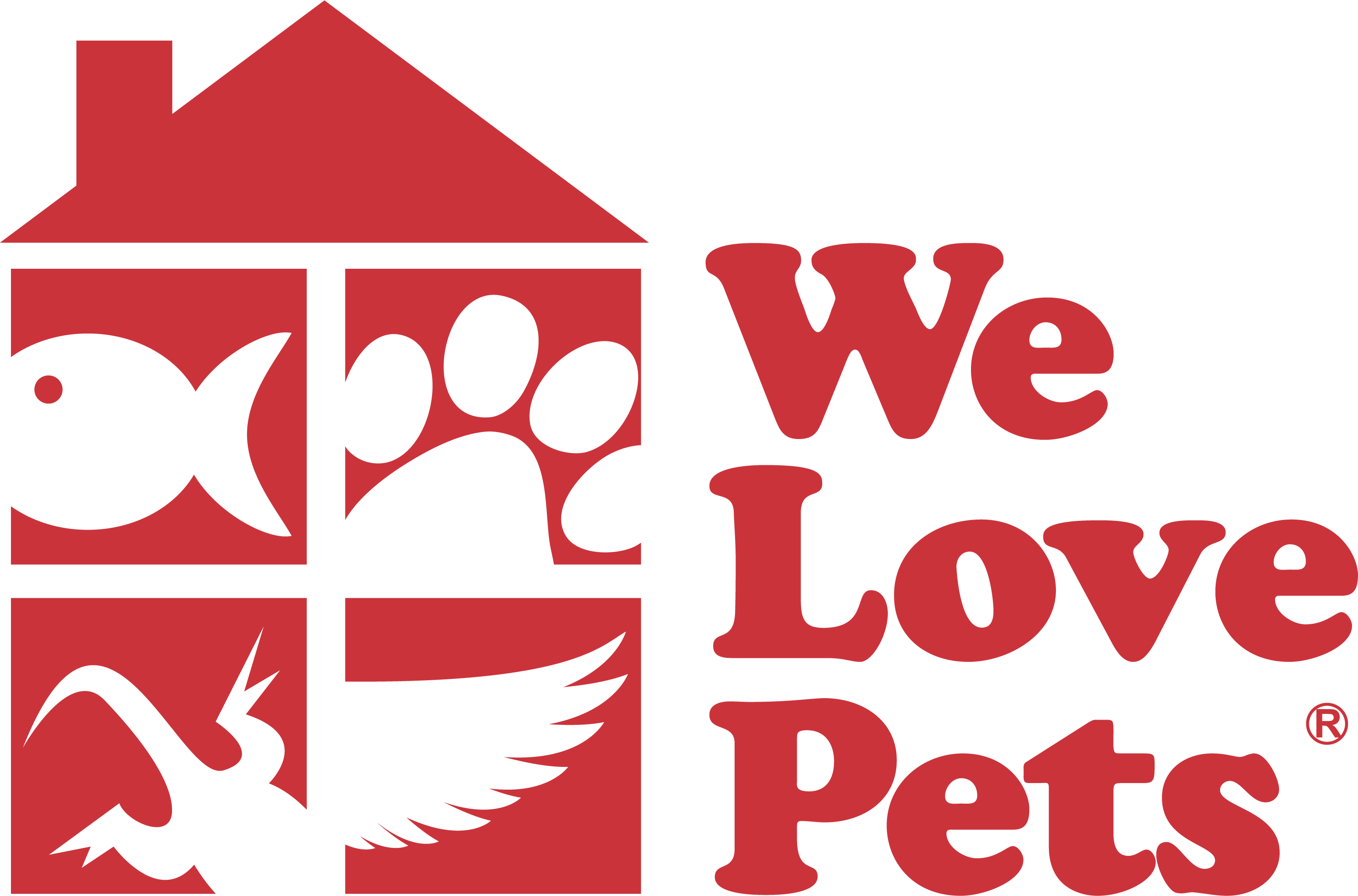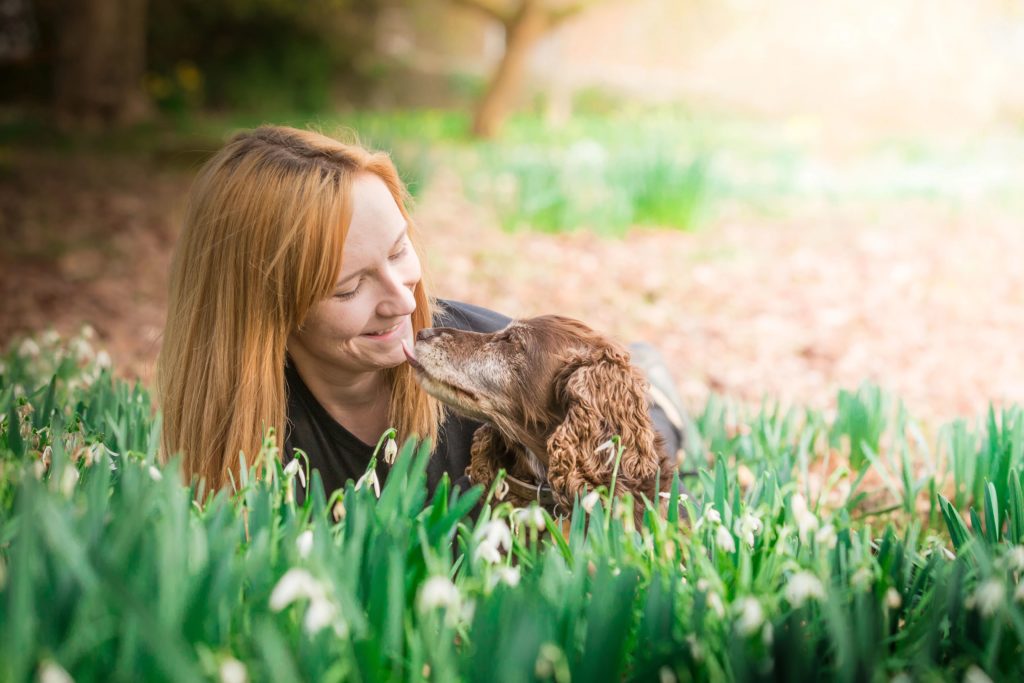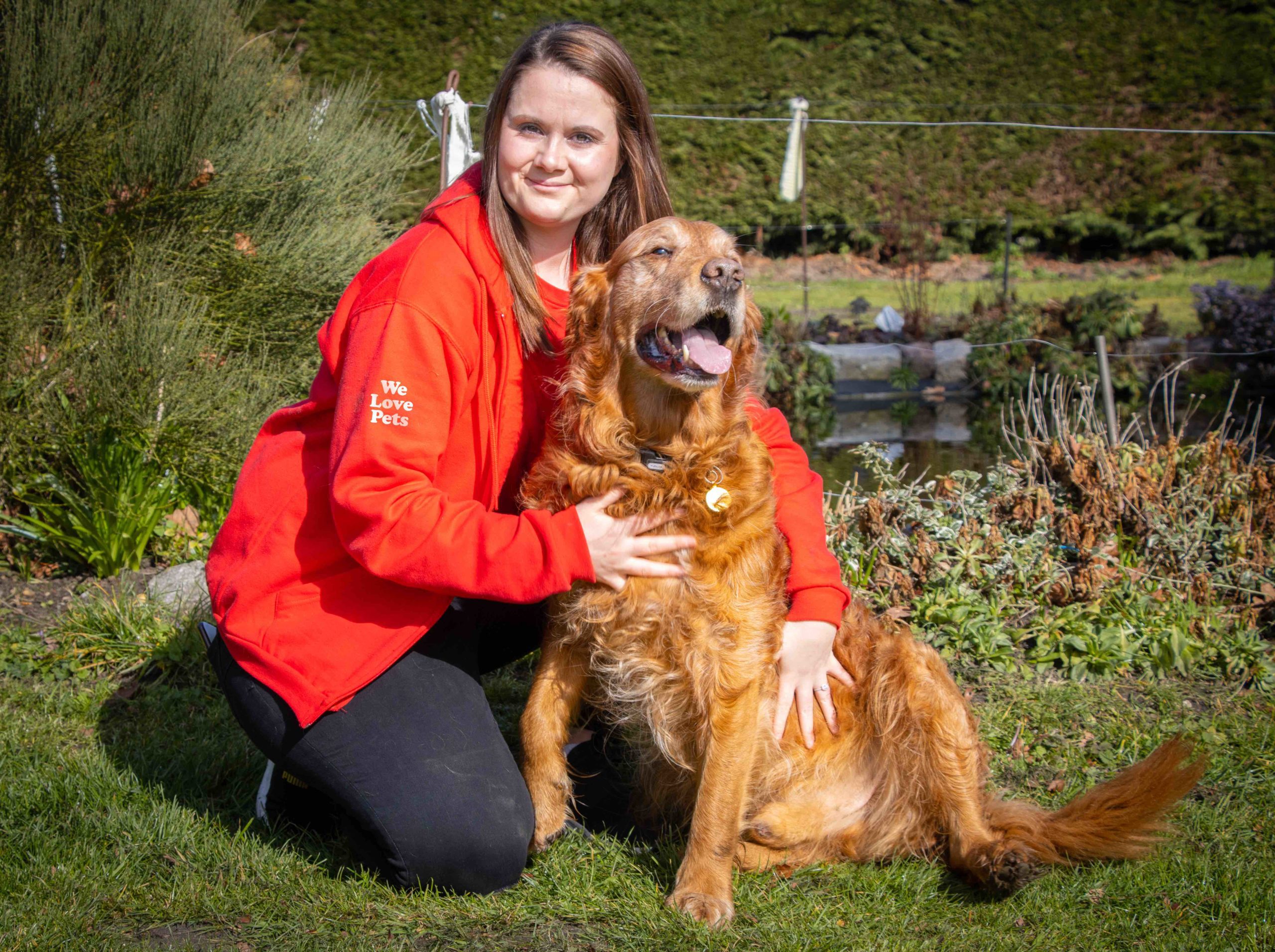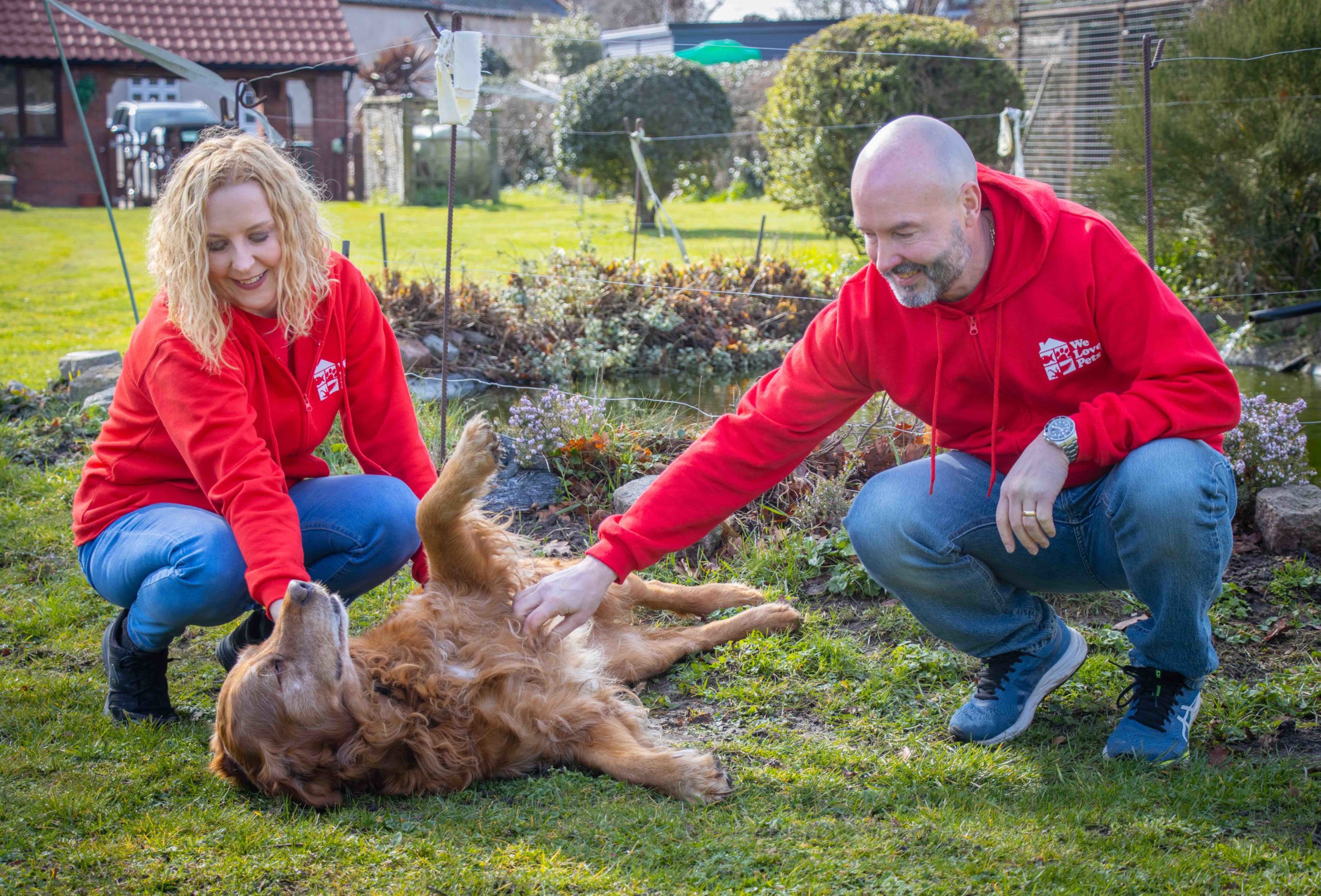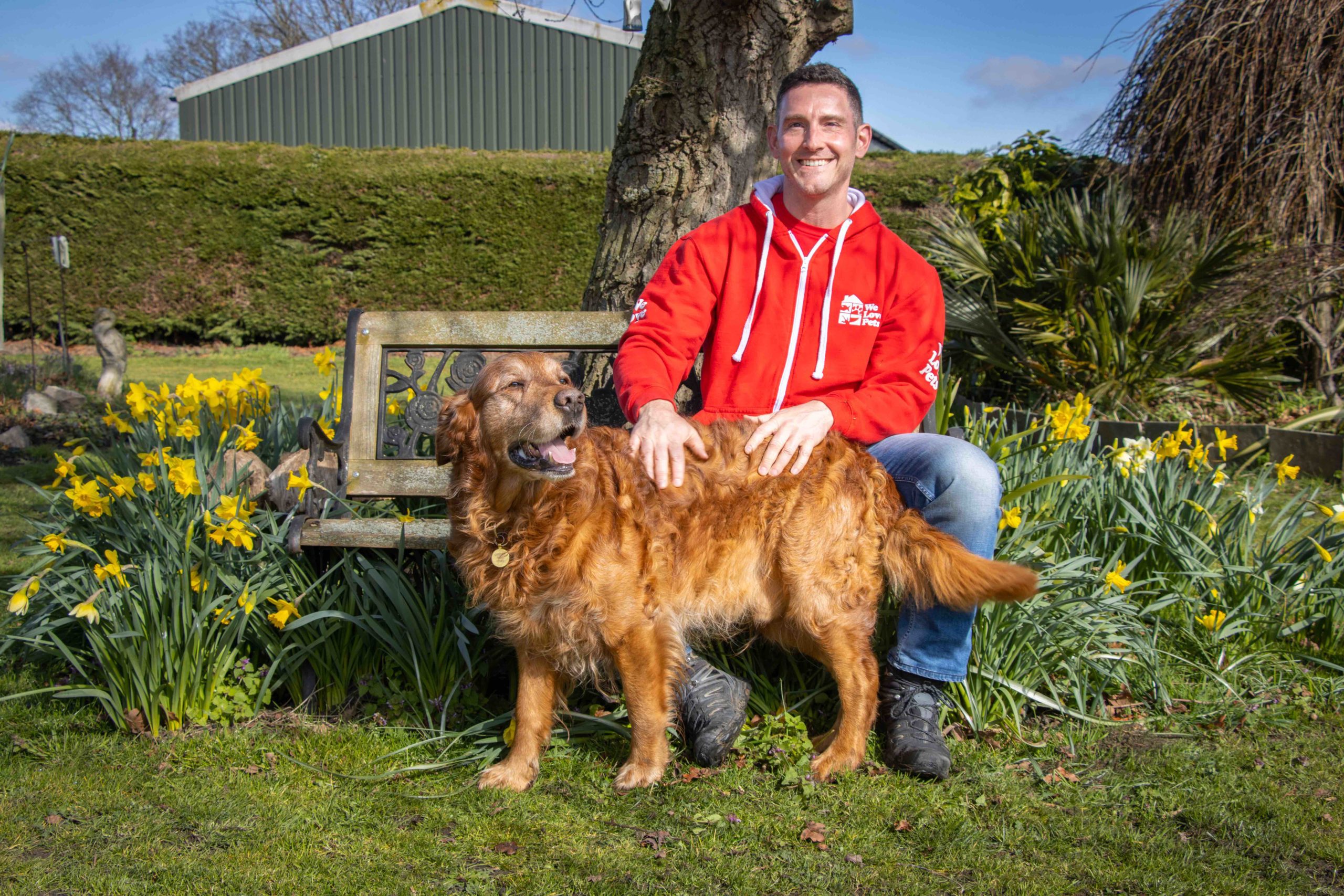We’ve all been out on a walk, or thought the dog is much too happy in the garden on their own, only to find them busy eating the lawn! But why do they do it?
Some dogs enjoy eating grass simply because it tastes nice, particularly in warmer months; in spring and summer.
Sometimes a dog may even be eating grass because something even tastier has been dropped or trodden into it, like a sweet or a salty bag of crisps.
Many dog owners worry their dog is eating grass because they have a bad tummy and want to get rid of something they’ve eaten, or that they’re lacking in vital nutrients, but studies have shown that there’s no evidence to support those fears.
Chelsey Wheeler, our vet nurse, says:
“We have clients come into the clinic all the time asking about their dogs eating grass and, in most cases, it can be very normal behaviour. Both my dog and cat regularly have a munch without concern. When advising them, we ensure the behaviour doesn’t become excessive and they aren’t eating plants that could potentially be toxic. It is also a good idea to ensure they are wormed regularly and treated for lung worm. A little bit of fresh grass can be a healthy addition to their diet should they choose, but if you have any concerns then always check with your vet.”
So as long as the habit doesn’t become excessive, we don’t think there’s any reason to worry, but do make sure your dog isn’t doing it out of boredom. Try distracting them with a ball, or by calling them away; or if you’re in your own garden maybe they need somewhere larger to roam, so a good walk may help take their mind off chewing the cud.
Puppies will often eat grass and weeds as part of their young curiosity; they’re investigating new sights and smells. It’s best to discourage them from eating everything they see, as this can lead to destructive behaviour indoors by chewing on furniture too.
Our Stroud and Tetbury branch director, Sophie Baldwin, has had over 25 years of veterinary experience and comments:
“In my vet nursing career, I have never seen a dog have any issues with eating grass. With dogs, it tends to be grass seeds that cause more problems.”
If you think anything harmful may have been on the grass they’ve eaten don’t hesitate to call your vet for advice, or if your dog is showing signs of an acute illness or excessive vomiting you may wish to seek advice in person.
During spring and summer is when grass may be even tastier for dogs; grass seeds, bugs and parasites can be a problem. Here’s some advice on how to look out for them and keep any problems at bay.
Sophie Baldwin also warns of the possible issues cats can develop when eating grass:
“It is our feline friends where blades of grass can cause issues, with the cat usually being brought into the vet practice because the cat is coughing, or has a discharge from its nose. This can be due to a longer blade of grass being trapped within the naso pharynx at the back of the throat. Once the grass blade is removed, there is immediate relief.”
Have you seen our range of dog and cat food over at We Love Nutrition? Maybe your extra family member might be ready for a change to grain free food?

Sophie Baldwin, VN, Stroud director.
Sophie, the owner of our We Love Pets Stroud branch, previously worked as a full-time registered veterinary nurse in a small animal practice and referral centre in Dursley, before she hung up her scrubs and decided to join the We Love Pets team. Sophie has over 25 years of experience in the veterinary world and loves caring for the animals she looks after with her branch.

Chelsey Wheeler, RNV, RVT, BSc
Chelsey trained to be a vet nurse in Canada. She moved to the UK in 2014 and has worked as a vet nurse for ten years. She currently works at a veterinary practice in Wiltshire as well as teaching vet nurse courses. She supports franchisees by providing training and an advice service.
